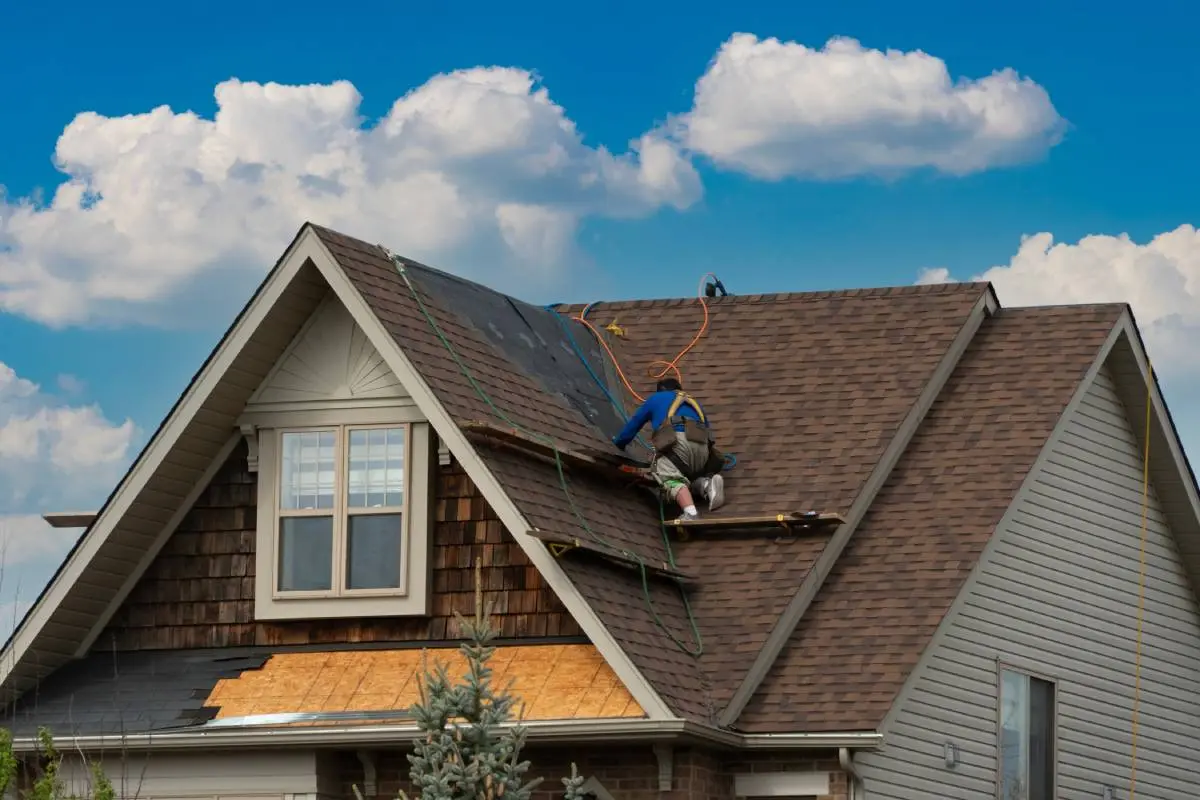Florida law requires that anyone performing paid roofing work be properly licensed or employed by a licensed roofing contractor. This ensures you have a solid understanding of building codes, safety regulations, and industry best practices. Below, you’ll find a concise overview of how to obtain your Florida roofing license, including the different license types, required qualifications, and tips to help you pass the Florida roofing license exam.
Florida Roofing License Types
In Florida, there are two main categories of roofing contractor licenses: Certified Roofing Contractor and Registered Roofing Contractor. The type of license you pursue determines where you can work and the process required to get licensed.
Certified Roofing Contractor
A certified license allows you to work as a roofing contractor anywhere in Florida. To become a certified roofing contractor, you must meet state requirements and pass the state roofing contractor exam. Certified contractors may offer “unlimited” roofing services statewide, meaning they do not need additional local licensing in each jurisdiction.
Florida’s Department of Business and Professional Regulation (DBPR) issues a certified license number beginning with the letters “CCC” (often called a “CCC license”) followed by six or seven digits. This CCC designation verifies that you are state-certified to perform roofing work.
Registered Roofing Contractor
A registered license is limited to a specific local jurisdiction within Florida. To obtain a registered roofing contractor license, you must first meet the local competency requirements in the area where you want to work, typically by passing a local exam and proving you have insurance and workers’ compensation meeting local requirements.

You then register with the state by obtaining a DBPR-issued license number beginning with “RC”, which signifies you are approved to work in that locale. Unlike a certified contractor, a registered contractor cannot work statewide, only in the locality where they hold a competency certificate. The upside is that obtaining a registered license does not require the state roofing exam or the full state experience requirements; however, it greatly limits where you can operate.
Florida Roofing License Requirements
Before applying for a roofing contractor license in Florida, you must satisfy a series of mandatory requirements:
- Applicants must be at least 18 years old.
- Florida mandates a blend of on-the-job experience and/or relevant education equating to four years in the roofing trade. Typically, this involves having four years of experience working in roofing (with at least one year in a supervisory role). Alternatively, if you have a qualifying construction or building-related degree, you may substitute up to three years of experience, but you still must have at least one year of field experience.
- All certified roofing contractor applicants must pass two comprehensive exams: the Business and Finance exam and the Roofing Trade Knowledge exam. These tests assess your technical roofing skills and your ability to manage a contracting business, including understanding Florida contractor laws and financial practices.
- Applicants must provide a personal credit report from a board-approved agency. Those with a credit score below 660 may be required to obtain a surety bond or an irrevocable letter of credit as a condition for licensure.
- All candidates undergo a mandatory electronic fingerprinting and background check through a Florida Department of Law Enforcement (FDLE) approved service.
- The state generally requires a minimum of $100,000 for public liability and $25,000 for property damage coverage. In addition, contractors are either required to have workers’ compensation insurance for any employees or obtain an exemption if they work alone. Proof of insurance must be maintained for license issuance, as well as for pulling permits and conducting business operations.
- Finally, you must submit a complete application to the DBPR along with the appropriate fee. The fee for an individual roofing contractor license usually ranges from $145 to $245, depending on where you are in Florida’s biennial licensing cycle.
Note: If you’re starting a roofing business, keep in mind that many contractors explore roofing contractor financing to help their customers manage initial expenses.
How to Get a Roofing License in Florida
Now that you are familiar with the baseline requirements, let’s focus on the overall process to obtain your Florida roofing license.
Confirm Your Eligibility
Begin by verifying that you meet all the necessary criteria — experience, education, examination readiness, financial stability, and background standards. Gather all supporting documents, including proof of work history, transcripts, and any documents regarding your credit status or military service.
Register for the Exams
Next, enroll in the state’s contractor exam program. Florida’s roofing contractor exams are administered by Pearson VUE and are offered on a computer-based testing schedule throughout the year.
Make sure to register for both the Business and Finance exam and the Roofing Trade Knowledge exam (or verify you qualify for the degree exemption waiving the trade portion). Utilize approved study guides and consider enrolling in a preparatory course if needed.
Submit Your Application to DBPR
After passing the necessary exams, complete and file your roofing contractor license application with the DBPR.
Attach all required supporting documents, including your exam results, proof of experience, fingerprint clearance, and any necessary credit/bond paperwork.
Monitor Your Application Status
After submission, the Construction Industry Licensing Board will review your materials. You may be contacted for clarification or additional documentation if needed.
Keep an eye on your application status through the online portal and respond promptly to any inquiries. This phase should not take more than 90 days according to Florida law, though many applicants receive approval sooner if their documents are in order.
Receive Your License and Prepare for Renewal
Once approved, you will be issued your Florida roofing license. For certified licenses, your license number will start with “CCC,” signaling that you are approved to work anywhere in Florida.
Remember that maintaining your Florida roofing license means fulfilling continuing education requirements and renewing your license every two years.
Florida Roofing License Exam
The Florida roofing contractor examination is split into two parts: the Business and Finance exam and the Roofing Trade Knowledge exam. These exams are overseen by the CILB/DBPR and administered via computer at Pearson VUE testing centers throughout the year. It’s recommended you schedule each part on different days due to their length.
Business and Finance Exam
This portion tests your knowledge of running a contracting business. It’s a lengthy exam comprised of 120 questions with a time limit of 6.5 hours. The content covers topics like:
- establishing and managing a contracting business
- administrative duties
- construction accounting
- bidding and contract management
- Florida contractor laws
- complying with government regulations
The test ensures you understand the business side of roofing contract work in Florida (laws, finance, record-keeping, etc.).
Roofing Trade Knowledge Exam
This portion tests technical roofing knowledge. It consists of 80 questions with a time limit of five hours. The exam covers roofing-specific topics such as:
- different roofing materials and systems (shingles, shakes, single-ply membranes, metal roofing, tile roofs, etc.)
- roof installation techniques
- safety practices
- wind mitigation
- Florida Building Code requirements for roofing
In order to pass, you must be familiar with roofing construction details and best practices.
Open-Book Format
Both parts of the Florida exam are open-book exams. This means you are allowed to bring certain approved reference books and resources into the testing center. Common references include the Florida Building Code, OSHA regulations, a construction accounting manual, roofing estimation and design manuals, and other technical references.

While the exams are open-book, time is limited given the number of questions, so you must know your reference materials well to quickly find answers. Studying and tabbing your books in advance is highly recommended.
Passing Score
You must score at least 70% on each exam to pass. If you pass one part and not the other, you only need to retake the failed part. You are required to pass both parts within a four-year period, at which point the passed portion may expire per DBPR rules. It’s best to take the second part shortly after passing the first so all results stay within the allotted time frame.
Exam Scheduling and Fees
To take the Florida roofing license exams, you’ll first register (usually through Professional Testing, Inc. at FloridaExam.com) and pay an exam registration fee of $135. After that, each exam part has its own examination fee of around $80 (so $80 for Business and Finance and $80 for Roofing Trade). In total, expect to pay roughly $295 for the testing process. Upon registration, you will receive information to schedule your test appointments. Exam dates are available year-round, but slots can fill up, so schedule in advance once you feel prepared.
Exam Waiver for Degree Holders
If you have a bachelor’s degree in building construction from an accredited four-year college and maintained a GPA of 3.0 or higher, you may be exempt from taking the trade knowledge exam. Qualifying degree-holders only need to take the Business and Finance portion of the exam.
This is a relatively recent change in Florida law (effective July 1, 2020) aimed at accelerating licensing for those with a relevant formal education. If you believe you qualify for this exemption, submit the necessary documentation (such as your official transcripts) with your application as directed by DBPR.
How Long Does It Take to Get a Roofing License in Florida?
The timeline can vary considerably depending on your situation. Here’s a general overview:
Experience Accumulation
The most time-intensive part for newcomers is accumulating the required four years of roofing experience or the equivalent mix of education and fieldwork. If you are already working in roofing, you may be ready sooner. In cases where a qualifying degree is held, you might only need one year of fieldwork.
Exam Preparation and Scheduling
Once you meet the experience and education criteria, exam preparation can range from a few months to longer, depending on your existing knowledge and available study time. With exams available year-round at Pearson VUE centers, scheduling is relatively flexible.
Application Processing
After completing the exams and submitting your application with all necessary documentation, the DBPR processes applications within 90 days by law. However, many applicants report receiving their Florida roofing licenses in four to eight weeks if all paperwork is complete and in order.
Florida Roofing License: Key Takeaways
With dedication and careful planning, you’ll meet the requirements, pass the necessary exams, and establish a solid foundation for your business. Once you obtain your Florida roofing license, take advantage of effective marketing strategies for roofing contractors to help you stand out in a competitive market and attract more clients!


